Fatal West Coast shark attacks prompt bold plea to control predator from mayor
A bold proposal by an Eyre Peninsula mayor to hunt and kill great white sharks responsible for deadly attacks will be discussed at a local government conference next month.
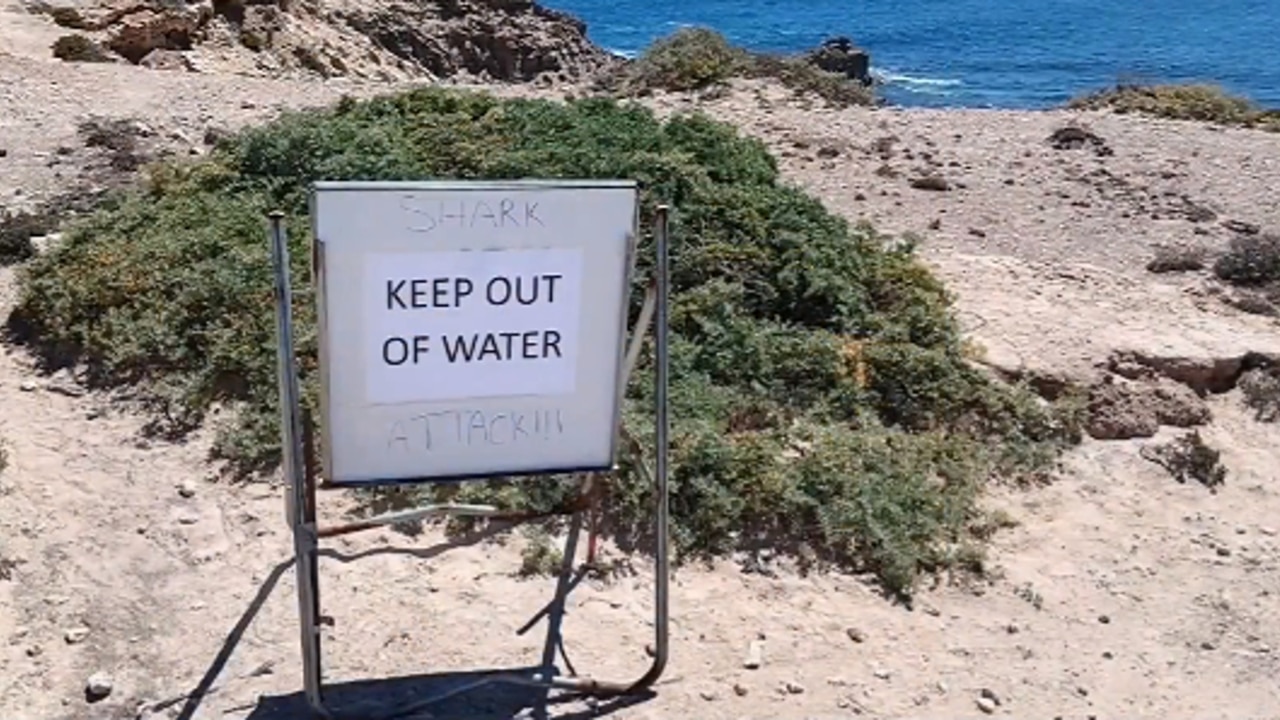
SA News
Don't miss out on the headlines from SA News. Followed categories will be added to My News.
A bold proposal by an Eyre Peninsula mayor to hunt and kill great white sharks responsible for deadly attacks will be discussed at a local government conference next month.
Elliston Mayor Andrew McLeod wants the SA Government to kill sharks responsible for fatal attacks, after they claimed three lives in SA waters in the past nine months.
Mr McLeod, who was knocked off his surfboard by a shark 10 years ago, has appealed to the other 10 Eyre Peninsula councils to lobby the government to take greater action.
In a motion, to be discussed by the Eyre Peninsula Local Government Association next month, Mr McLeod wants support for the government to “capture and kill” sharks responsible for attacks.
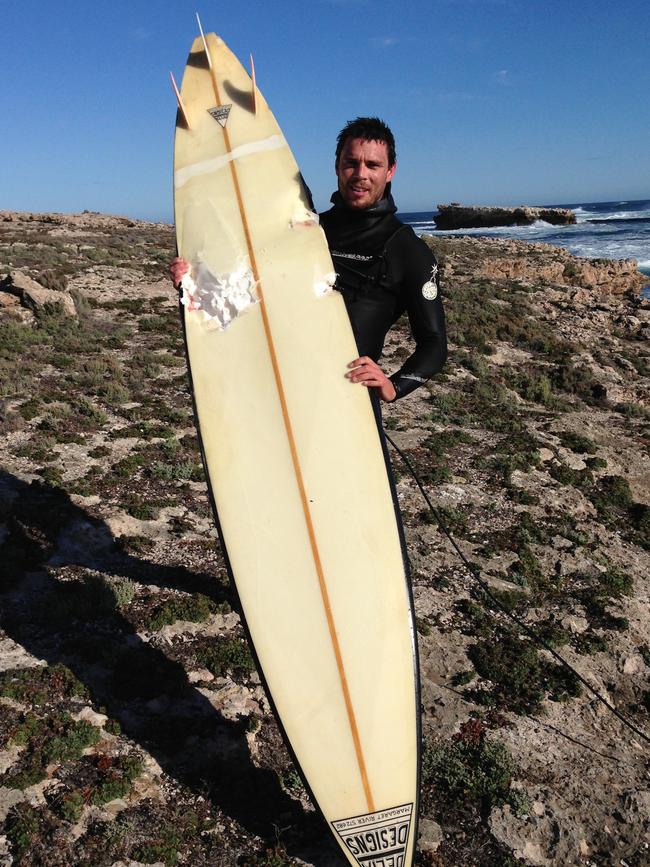
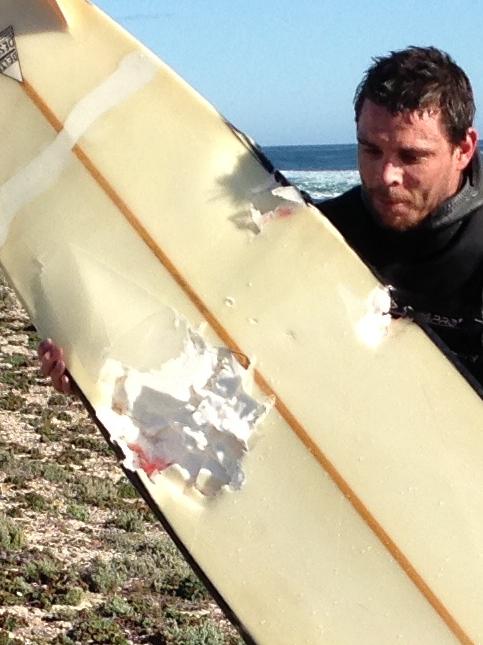
He also wants the councils’ support to condemn the use of berley to attract sharks for “entertainment purposes”, such as cage diving operations at Port Lincoln.
He wrote the “implications” of doing nothing would be more people being harmed or killed by sharks, more mental trauma on those who witness attacks and a downturn in tourism.
“We know that people are being mutilated and killed by shark attacks on the Eyre Peninsula and that these attacks have increased in frequency,” he wrote as part of the motion.
“Success looks like our voice being heard by the government … to bring about change by implementing measures that reduce the risk of shark attacks.”
A state government spokesman said police and fisheries officers had the power to destroy sharks that posed an “imminent threat to life” but these powers had never been used following a reported shark attack.
In the meantime, Elliston Council will install arterial bleed first aid kids along the coastline and to develop and provide a surfers first aid course to its residents free of charge.
It follows Elliston schoolteacher Simon Baccanello, and surfers Tod Gendle and Khai Cowley, 15, being killed by sharks last year.
South Australia topped the global list of fatal shark attacks in 2023 – two non-fatal attacks were also recorded.
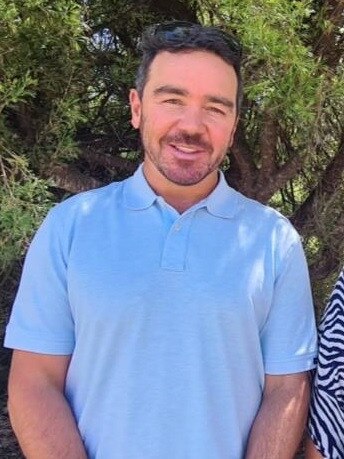
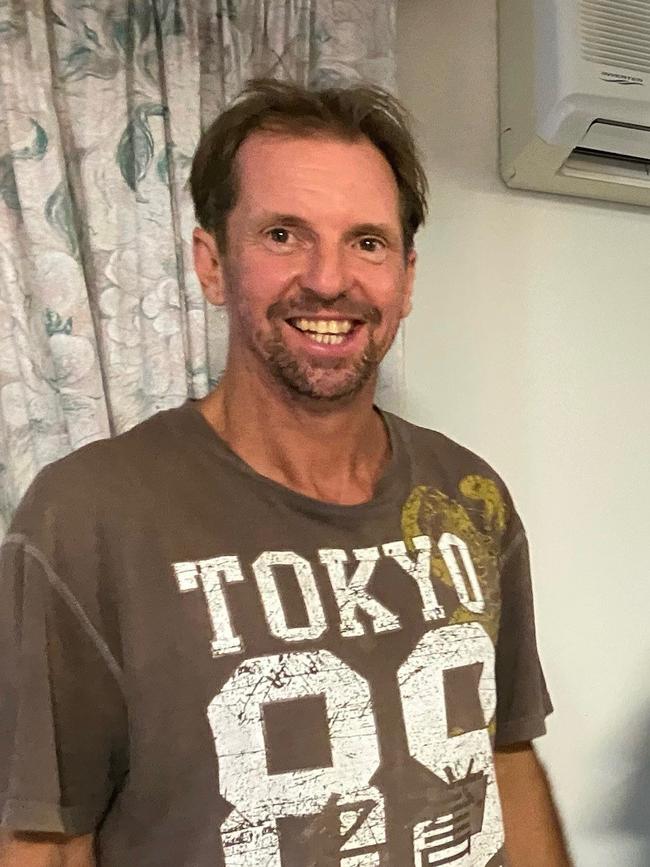
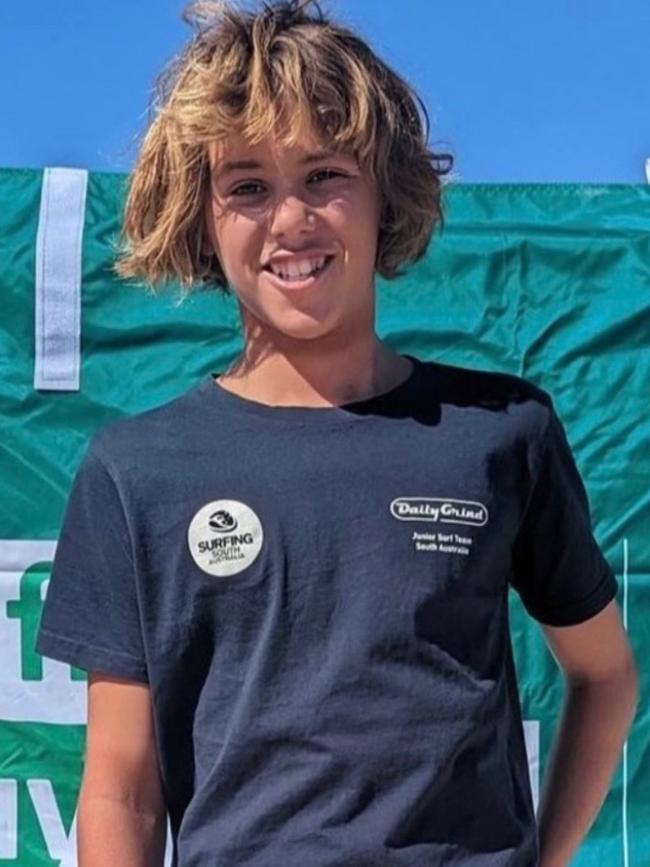
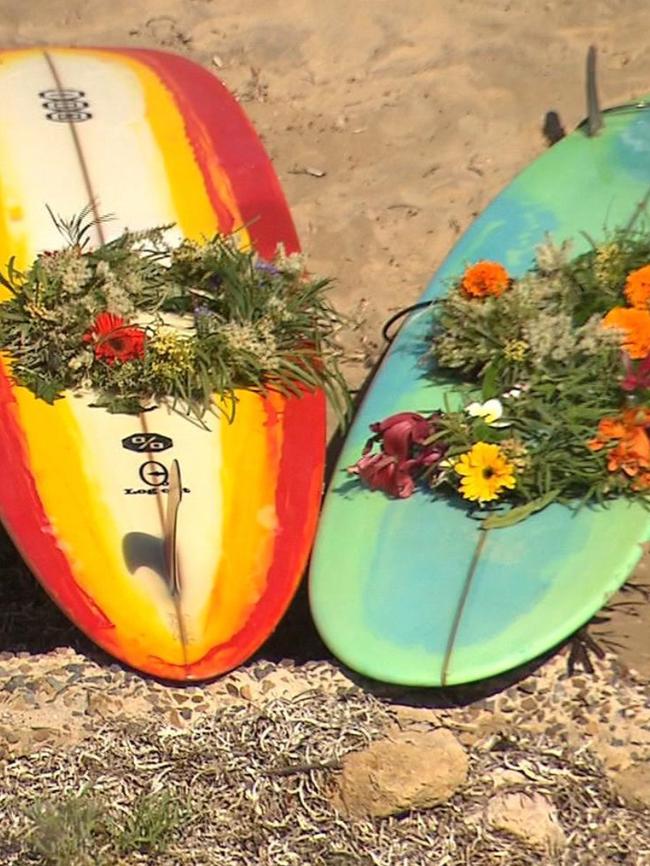
Port Lincoln Council will discuss the motions at its meeting on Monday night ahead of the EPLGA conference on March 1, which will hear from marine ecologist and Flinders University professor Charlie Huveneers.
Mayor Diana Mislov acknowledged it was an “extremely sensitive and emotive issue”.
“It is a very sensitive topic that we feel great deal of empathy for communities and families of the victims of shark attacks,” Ms Mislov told The Advertiser.
“We look forward to the EPLGA meeting where we will hear from the experts on marine science, in particular the shark behaviour as it relates shark diving and other models.”
Ms Mislov commended efforts to reduce the risk of attacks but believed deterrent measures, such as personal shark shield deterrent devices and shark barriers should be investigated.
She added the berley motion had “serious implications” for the town’s premier tourist attraction – the only place in Australia to offer cage diving.
The two shark dive operators contribute $11.3m to the state economy annually and support approximately 70 jobs, according to a government report. Operators are authorised to use specific methods to attract sharks, including underwater sound and berley.
“We note that shark cage diving is not the only industry that berleys … the fishing industry discharges fishing waste which would act as berley potentially attracting great white sharks to boats,” Ms Mislov wrote in council documents.
“Therefore the proposed resolution potentially puts other industries that advertently or inadvertently berley at risk.”
Andrew Fox, a great white shark photographer, researcher and conservationist, said there was little merit in destroying a shark involved in a fatal attack other than a “sense of vengeance” and could give people a “false sense of security” to return to the water at a time when shark activity generally increased because of other sharks feeding in the area.
“People need to feel like they’re doing something,” he said.
“They want to feel safe.”
Mr Fox said there was no evidence to suggest a shark would attack anyone in the water immediately after an incident.
“There’s no evidence to suggest that there’s ever been a rogue shark,” he said.
Prof Huveneers, who led an international shark in Port Lincoln in November attended by over 170 scientists and managers from seven countries (White Sharks Global), said “series of shark bites in a short time frame, such as what recently happened in SA, are tragic events that impact many people and communities, but are not as unusual as people think, and has previously occurred in other Australian states and other countries.”
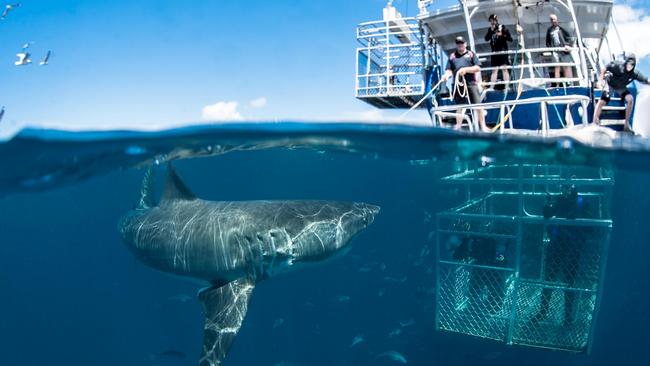
He said shark bite trends were difficult to explain due to the range of potential factors affecting the risk of shark bites, including human population growth, habitat modification and destruction, declining water quality, climate change and anomalous weather patterns, and changes to the distribution and abundance of sharks and their prey.
He said “a range of mitigation measures are available to reduce the risk of a bite, including non-lethal methods such as swimming enclosures, aerial surveillance, early warning systems, personal electronic deterrents and bite-resistant wetsuits, and lethal methods, but the efficacy of these methods vary between locations and the first step is to objectively assess which methods is most suited to each of the diverse South Australian coastlines”.
“Education and awareness about the efficacy of these mitigation measures, shark movement patterns and key areas, risk of shark bites are also essential,” he said.
Premier Peter Malinauskas has established a taskforce of key agencies to review the state’s shark mitigation measures, including aerial patrols and drones.
A government spokesman said shark mitigation techniques used nationally and internationally would also be considered by the taskforce.
A 2017 Senate inquiry into shark mitigation and deterrent measures recommended state governments follow Western Australia’s lead and subsidise personal shark deterrent devices to help reduce attacks.
Originally published as Fatal West Coast shark attacks prompt bold plea to control predator from mayor




